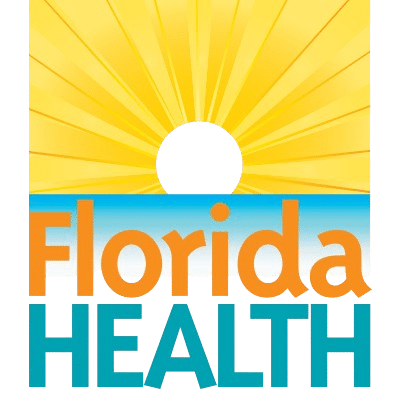Our Process
Outpatient Cannabis Detox
Many people underestimate the complexity of cannabis withdrawal, but our clinical experience shows that professional support makes a significant difference. Frontline Recovery’s marijuana detox program operates on a flexible outpatient model where you receive specialized medical attention during scheduled visits while returning to your own environment each day.
The detox process involves complex neurochemical adjustments that benefit from expert guidance and monitoring. Our practitioners utilize evidence-based protocols to ease discomfort and prevent complications. We focus on restoring your body’s natural balance while addressing the psychological aspects of dependency to prepare you for life beyond cannabis use.

What Our
Frontline Recovery Community Is Saying

Treatment
What to Expect
During Cannabis Withdrawal
Cannabis affects the brain’s reward system and sleep-wake cycles, making withdrawal a complex journey that varies significantly between individuals. While the process is generally less severe than with other substances, the symptoms can still be challenging and disruptive to daily life.
Typical withdrawal symptoms include:
- Decreased appetite and weight loss
- Sweating and temperature fluctuations
- Depression and mood changes
- Headaches and physical discomfort
- Tremors and shakiness
- Irritability and emotional sensitivity
- Insomnia and sleep disturbances
With professional medical support, these symptoms become manageable, allowing you to focus on building healthy habits and coping strategies for sustained recovery.

Where Recovery Happens
Discover the supportive environment and compassionate team behind your journey.

Benefits
What Sets Us Apart
Benefits of Outpatient Detox
Frontline Recovery stands as Florida’s premier outpatient detox facility, offering specialized cannabis withdrawal treatment that adapts to your lifestyle. Our innovative approach recognizes that healing shouldn’t require you to abandon your responsibilities or take you away from the comfort of your home.
Program advantages include:
- Convenient treatment timing respecting your obligations
- Expert oversight and withdrawal symptoms management
- Welcoming services for all community sectors
- Efficient daily visits without facility confinement
- Evidence-based medication strategies tailored to you
- Integrated psychological services alongside medical care
Discover treatment that works with you, not against you. Frontline Recovery provides exceptional detoxification care through a model that prioritizes accessibility, clinical excellence, and respect for your personal circumstances.
We Accept Most Major Insurance
Signs & Side Effects
What are the Signs of Cannabis Addiction?
Cannabis dependency can be challenging to identify because marijuana is often viewed as harmless. However, regular abuse can lead to genuine addiction with serious consequences.
Look for these concerning signs:
- Bloodshot eyes and persistent dry mouth
- Increased appetite and weight fluctuations
- Impaired balance and coordination
- Sleep problems and excessive drowsiness
- Mood swings, irritability, and agitation
- Difficulty focusing or making decisions
- Poor judgment and risky behavior
How Cannabis Abuse Impacts Your Health
Cannabis abuse creates significant health consequences that extend beyond the immediate effects of intoxication. Long-term dependency affects brain development, respiratory function, and mental health stability, influencing overall well-being and daily functioning.
- Breathing issues and lung function decline
- Elevated heart rate and cardiac complications
- Digestive problems, including nausea and vomiting
- Visual or auditory hallucinations
- Intense paranoia and irrational fears
- Confused thinking and memory impairment
- Clinical depression and emotional instability
- Severe anxiety and panic disorder symptoms
- Thoughts of suicide or self-destructive behavior

Candidates
Who We Serve
Is Our Program Right for You?
Cannabis addiction treatment should be accessible to everyone, regardless of their personal circumstances or professional obligations. Our outpatient detox program serves individuals who recognize they need help but cannot commit to residential treatment due to their established routines and responsibilities.
We serve:
- Working professionals who cannot afford extended absences
- Parents and caregivers managing family obligations
- Students balancing academic and personal demands
- Healthcare workers and first responders needing discretion
- Anyone seeking quality treatment without residential placement
Rehabilitation fits into your life, not the other way around. At Frontline Recovery, we provide comprehensive services that respect your schedule and support your continued success.
Specialized Therapies
Individualized Treatment
for Unique Professional Challenges
We understand that certain professionals face unique challenges and require a different approach to treatment. That’s why we’ve developed specialized therapies tailored to address their specific needs.
Explore our specialized therapies today:
We offer confidential outpatient detox and therapy tailored to the unique stressors police officers face. Our care supports both mental wellness and career demands.
Detox and therapies specially designed for veterans, addressing substance use and PTSD. We provide compassionate, expert support for lasting recovery.
Medical professionals receive flexible detox and addiction treatments that fits demanding schedules. We protect your privacy and support your overall well-being.
Firefighters benefit from safe outpatient detox and therapies that focus on trauma and stress. Our care helps build resilience and healthy coping skills.
Educators
Teachers and educators receive accessible detox and therapy that fits academic life. We address stress and provide tools for long-term wellness.
Executives have access to discreet, individualized care tailored to their work pace. We prioritize both personal recovery and the ability to fulfill professional duties.
Legal professionals receive discreet outpatient detox and therapies designed for their high-pressure roles. We offer support that fits the realities of practicing law.
Artists
Artists and musicians receive specialized care that fits creative lifestyles. We help nurture recovery while supporting continued artistic growth and inspiration.
Start Your Journey to Recovery with our Cannabis Detox Program Today
Recovery
Taking control of dependency starts with a single decision – the choice to seek help. The science is clear: professional support dramatically improves recovery outcomes compared to attempting detox for weed alone.
We’ve designed our program specifically for people who value their independence but recognize they need expert guidance to break free from the grip of substances. Our cannabis detox specialists have helped hundreds of individuals overcome addiction while maintaining their careers, relationships, and personal goals.
Whether you’re looking for drug and alcohol detox services or just need someone to talk to, our team can help.
Questions
Frequently Asked Questions
Answers to Your Concerns
Taking the first step toward recovery often comes with uncertainty and questions – and that’s completely normal. We’ve compiled answers to the questions we hear most often to help ease your concerns and provide clarity about our program.
Our goal is to ensure you feel informed and confident as you begin this important journey.
How long does cannabis stay in your system after detox?
THC, the main psychoactive compound in cannabis, can remain detectable in urine for 3-30 days after your last use, depending on the frequency of consumption and individual metabolism. Saliva and blood testing windows are much shorter at 1-3 days and 1-7 days respectively, while hair follicle analysis can detect usage for up to 90 days.
These timeframes vary significantly based on body fat percentage, hydration levels, and the potency of marijuana consumed.
Can cannabis withdrawal worsen mental health?
Yes, cannabis withdrawal can temporarily worsen existing conditions like depression, anxiety, and PTSD, particularly for people who were self-medicating these symptoms. When THC leaves your system, underlying issues may become more prominent as your brain readjusts to functioning without the substance’s effects. This is why medical supervision is crucial.
We can provide appropriate psychiatric medications and therapeutic support to manage these symptoms safely while your mental health stabilizes over the coming weeks.
Will my employer find out about my detox treatment?
Your treatment information is completely confidential and protected under HIPAA privacy laws. We do not contact employers or release any information about your participation in our program without your written consent. Many clients successfully complete treatment without their workplace ever knowing they sought help.
Can I continue taking prescription medications during weed detox?
In most cases, you can continue your existing prescriptions, but we’ll review all current medications during your initial assessment. Some pills may interact with marijuana withdrawal symptoms or detox medications, requiring dosage adjustments.
Can I use CBD products to help with cannabis withdrawal symptoms?
We generally recommend avoiding all cannabis-derived products, including CBD, during the initial detox phase to allow your brain chemistry to reset completely. Even CBD products may contain trace amounts of THC that could trigger cravings or prolong withdrawal symptoms.
Some clients find non-cannabis alternatives helpful for managing anxiety and sleep issues. We’ll discuss all your options for symptom management during your treatment planning.
How do you treat people using cannabis for chronic pain?
People who use cannabis for pain relief need a thorough evaluation to understand whether their use is medical or addiction-related. We carefully review your health situation and work with you to find other ways to manage your pain without depending on cannabis.
Our team might recommend prescription medications, trying physical therapy, or using other proven methods for your condition.





















